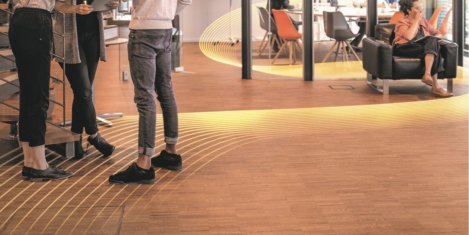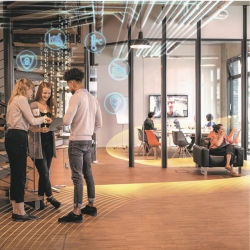To provide the best experiences, we use technologies like cookies to store and/or access device information. Consenting to these technologies will allow us to process data such as browsing behaviour or unique IDs on this site. Not consenting or withdrawing consent, may adversely affect certain features and functions.
The technical storage or access is strictly necessary for the legitimate purpose of enabling the use of a specific service explicitly requested by the subscriber or user, or for the sole purpose of carrying out the transmission of a communication over an electronic communications network.
The technical storage or access is necessary for the legitimate purpose of storing preferences that are not requested by the subscriber or user.
The technical storage or access that is used exclusively for statistical purposes.
The technical storage or access that is used exclusively for anonymous statistical purposes. Without a subpoena, voluntary compliance on the part of your Internet Service Provider, or additional records from a third party, information stored or retrieved for this purpose alone cannot usually be used to identify you.
The technical storage or access is required to create user profiles to send advertising, or to track the user on a website or across several websites for similar marketing purposes.
 Half of UK workers (49 percent) say that their mental health has declined since working from home, according to a new survey from Qualtrics. The study also claims that actions taken by companies are having a significant effect on the wellbeing of their employees, with one in five (18 percent) claiming that their organisation’s actions have had a negative impact on their mental health. (more…)
Half of UK workers (49 percent) say that their mental health has declined since working from home, according to a new survey from Qualtrics. The study also claims that actions taken by companies are having a significant effect on the wellbeing of their employees, with one in five (18 percent) claiming that their organisation’s actions have had a negative impact on their mental health. (more…)










 When faced with a moral dilemma, people usually respond in one of three ways, and the moral decision changes according to the setting, claims recent research from
When faced with a moral dilemma, people usually respond in one of three ways, and the moral decision changes according to the setting, claims recent research from 
 Working in multidisciplinary teams makes work more enjoyable and means that customers receive a better service claims new research from
Working in multidisciplinary teams makes work more enjoyable and means that customers receive a better service claims new research from 
 Employees enjoy working in a coworking space, claims a recent
Employees enjoy working in a coworking space, claims a recent 






 With less than a month to go before the government sets out its economic predictions in its first spring budget, new research points to a 30 percent increase in people planning to start a business or register as self-employed this year. With 1.4 million new limited company or self-employed registrations in 2019, 2020 could see that rise to as many as 1.8 million new registrations,
With less than a month to go before the government sets out its economic predictions in its first spring budget, new research points to a 30 percent increase in people planning to start a business or register as self-employed this year. With 1.4 million new limited company or self-employed registrations in 2019, 2020 could see that rise to as many as 1.8 million new registrations, 
 New research has been published aimed at understanding trends, practices and priority areas for improving employees’ experience and creating better places to work. The report,
New research has been published aimed at understanding trends, practices and priority areas for improving employees’ experience and creating better places to work. The report, 








February 27, 2020
The integration of people, place and policy will define the new workplace era
by Frances Gain • Comment, Wellbeing, Workplace design